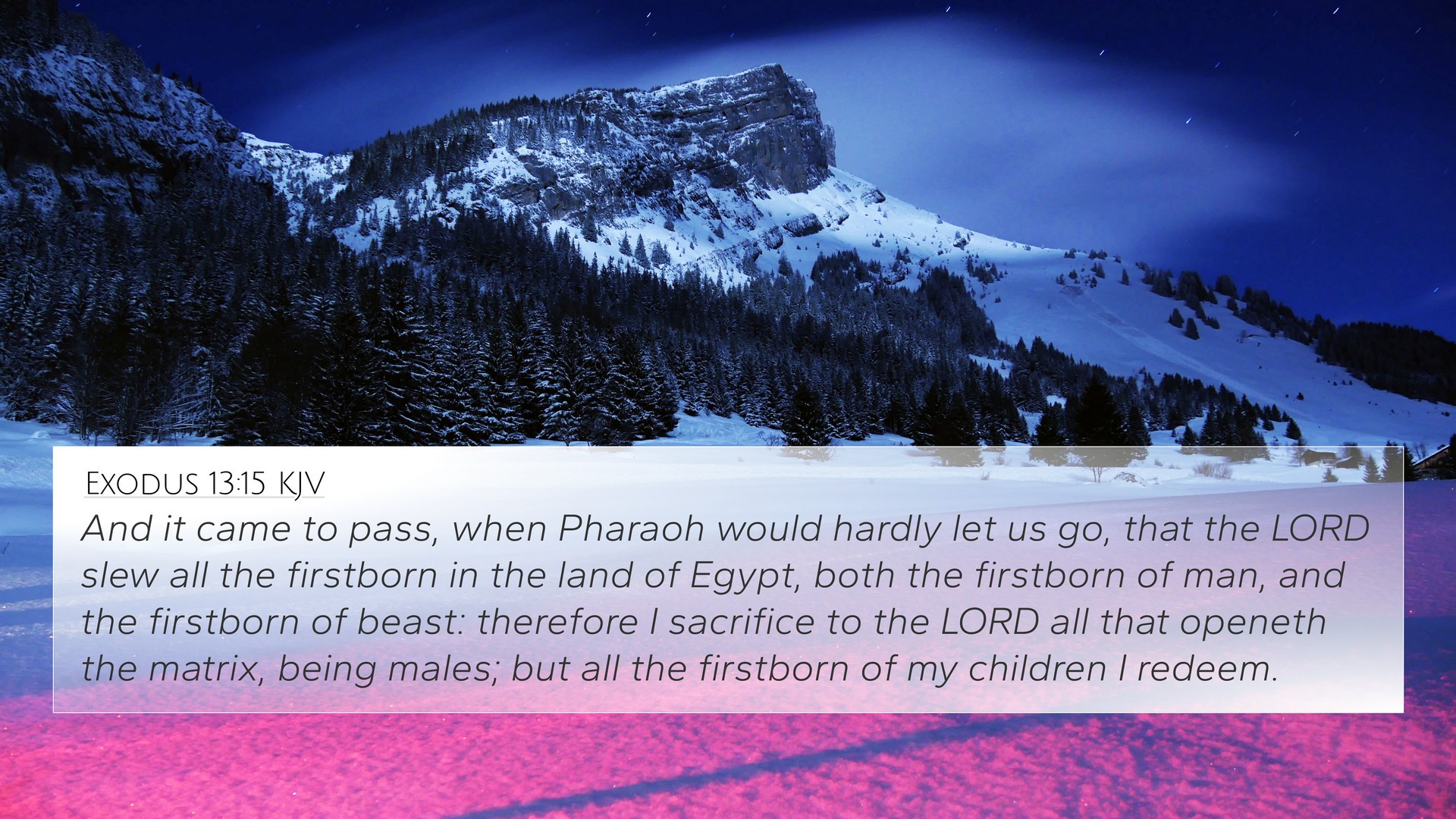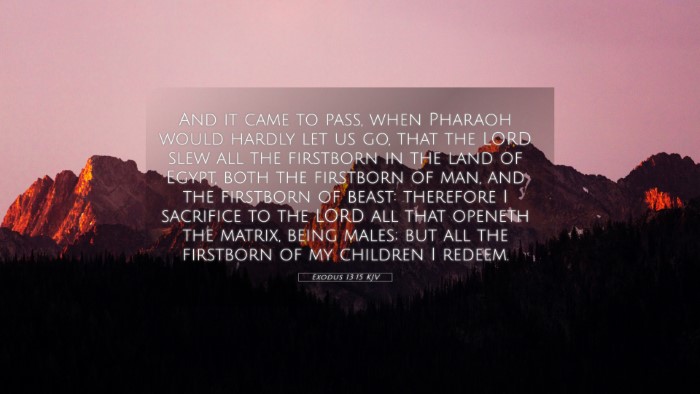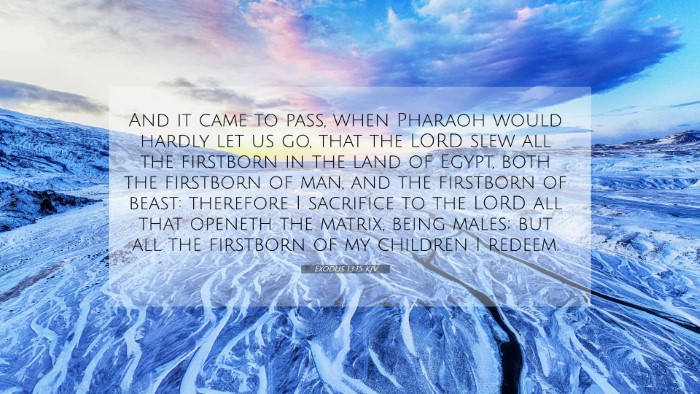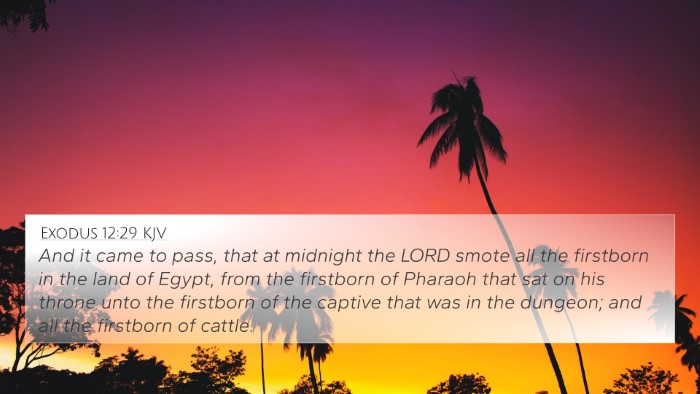Understanding Exodus 13:15
The verse Exodus 13:15 states: "And it came to pass, when Pharaoh would hardly let us go, that the Lord slew all the firstborn in the land of Egypt, both the firstborn of man and the firstborn of beast: therefore I sacrifice to the Lord all that openeth the matrix, being males; but all the firstborn of my children I redeem."
Meaning of Exodus 13:15
This verse encapsulates a significant moment during the Exodus, when God enacted judgment upon Pharaoh and the Egyptians for their refusal to release the Israelites. It conveys deep theological implications involving sacrificial practices, the sanctity of life, and God’s sovereignty over human affairs.
Key Insights
-
God's Judgment
Matthew Henry emphasizes that the death of the firstborn represents God's ultimate judgment against the idolatry and hard-heartedness of Pharaoh. It was God's decisive act to compel them to release His people.
-
The Significance of Sacrifice
Albert Barnes points out the ritualistic practices introduced as a result of this event. The Israelites were instructed to sacrifice their firstborn males to the Lord, laying the groundwork for Israel's religious observances and showing gratitude for divine redemption.
-
Redemption Principle
Adam Clarke highlights the idea of redemption, where the Israelites are reminded that their own firstborns had been spared through God's grace. This forms a basis for the concept of redemption seen throughout Scripture, connected to later New Testament teachings.
Bible Cross-References
Exodus 13:15 has several connections to other verses in the Bible that deepen understanding of its themes:
- Exodus 12:29-30 - This passage narrates the plagues, showing God's power over Egypt.
- Numbers 3:13 - Symbolizes the claims of the Lord on the firstborn since they belong to Him.
- Romans 8:32 - Links to the theme of God giving His own Son and highlighting the principle of sacrifice.
- Hebrews 11:28 - Relates to the faith of the Israelites in performing the Passover, linking back to God's deliverance.
- 1 Peter 1:18-19 - Explains the concept of redemption through Christ, echoing the redemption seen in Exodus.
- Luke 2:23 - References the custom of dedicating the firstborn to the Lord.
- Colossians 1:13-14 - Discusses the deliverance that reflects the Exodus story of salvation.
Thematic Connections
This verse can be analyzed thematically in relation to concepts such as salvation, sacrifice, and divine judgment. Several keywords emerge that can facilitate deeper study:
- Scriptural Cross-Referencing: Understanding how different verses relate and contribute to overarching biblical themes.
- Connections Between Bible Verses: Identifying how the Old Testament foreshadows New Testament revelations.
- Bible Verse Parallels: Studying the similarities found in the accounts of both Testaments enhances comprehension.
Conclusion
Exodus 13:15 serves not only as a historical record but as a rich source of theological understanding. When engaging in cross-referencing Bible texts, scholars can gain insights that illuminate the continuity of themes throughout the Scriptures. Utilizing tools for Bible cross-referencing such as concordances or guides can aid in the exploration of these connections.
Resources for Further Study
For those interested in delving deeper into the themes of Exodus 13:15, consider exploring:
- Bible Cross-Reference Guide - To help identify relevant connections and study how verses relate.
- Bible Concordance - Useful for locating specific terms and themes within the Biblical text.
- Cros-Referencing Bible Study Methods - Techniques that can be employed for thorough scriptural examination.
By understanding the implications of Exodus 13:15 and linking it with other scriptures, believers can enrich their spiritual growth and biblical literacy.



